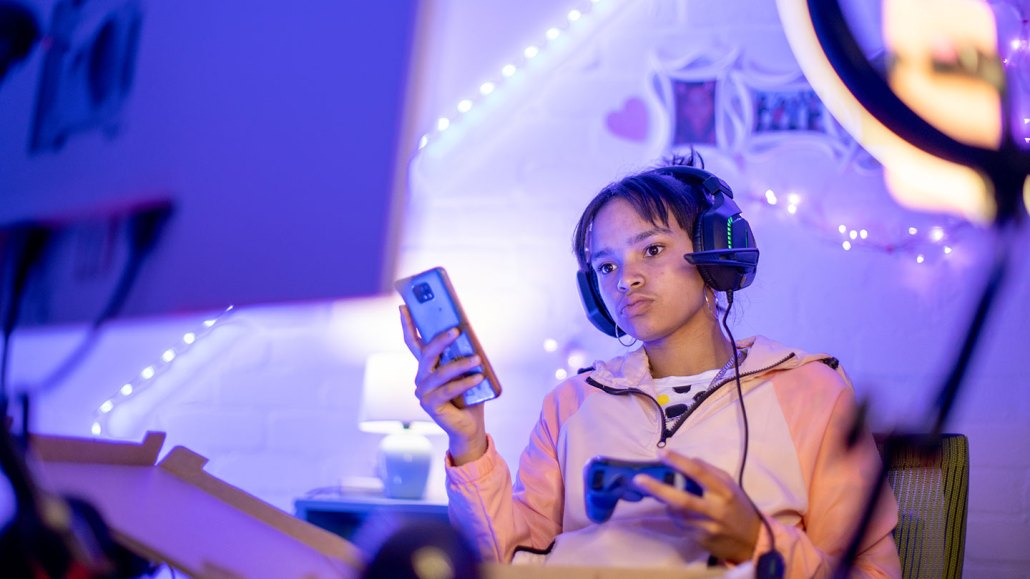Questions for ‘You’re too distracted. Here’s why that matters and what to do about it’

Multitasking, digital devices and lack of sleep can all lead to distraction and loss of focus.
Alistair Berg/DigitalVision/Getty Images Plus
Share this:
- Share via email (Opens in new window) Email
- Click to share on Facebook (Opens in new window) Facebook
- Click to share on X (Opens in new window) X
- Click to share on Pinterest (Opens in new window) Pinterest
- Click to share on Reddit (Opens in new window) Reddit
- Share to Google Classroom (Opens in new window) Google Classroom
- Click to print (Opens in new window) Print
To accompany ‘You’re too distracted. Here’s why that matters and what to do about it’
SCIENCE
Before Reading:
- Describe what it means to “multitask.” If you are trying to complete a homework assignment, do you feel that multitasking increases, decreases or has no effect on your productivity? Explain your answer.
- Estimate how many times you check your phone in a typical day. Do you check your phone more often, less often or about the same frequency as a typical person your age? Imagine you were to halve the time you spent on your phone. Would you get more things done (including fun things), fewer or about the same in a typical day? Explain your answer.
During Reading:
- How many times a day does the average adult check their phone?
- What’s the likelihood of a teen driver who texts vs. one who doesn’t getting into a car crash?
- Teun Siebers and his team studied the link between social media use and how distracted people felt. What percent of teens in this study reported feeling more distracted as they spent more time on social media?
- Siebers and his team found that teens with higher social media use felt generally more distracted. However, those teens who used social media the most actually reported lower distraction levels. What explanation did Siebers propose for this finding?
- How does blue light affect the brain’s release of melatonin?
- What is melatonin’s role in the body? How might such changes in melatonin lead to someone feeling more distracted the next day?
- Describe a study from this story that supports the conclusion that exercise improves brain function.
- What is the name of the sugar on which our brain operates?
- Describe one biochemical reason certain synthetic food dyes might cause one person to suffer attention issues and leave another person unaffected.
- Name the synthetic food dye that will become banned in California in 2027.
After Reading:
- A fellow student tells you he uses social media frequently during class because it helps him focus on the lesson. Despite this student’s claim, he rarely remembers what was discussed in class and struggles with poor grades. What misconceptions might this student have about the impact of frequent social media usage on his ability to focus in class? Write a short response to this student to address this misconception. Include scientific findings from this story to support your answer.
- Imagine you want to improve your ability to focus. Based on your reading, describe specific two changes that might improve your brain function. Which of these would you find easier to try?
- If you successfully improved your ability to focus and, therefore, could learn and remember things quicker, how might this improve your daily life? Describe one specific benefit. (Hint: Consider factors such as mental health or the available free time in a typical day.) Imagine you committed to making this change for two full days. Describe one obstacle you might encounter. Then, describe what you might do to overcome this obstacle if it arose.